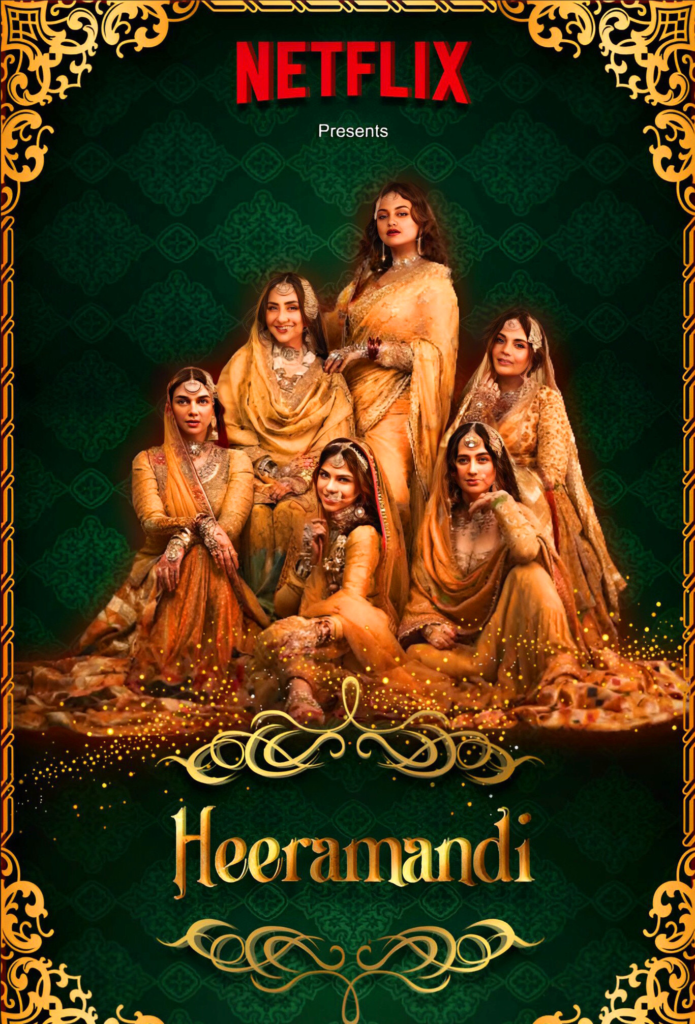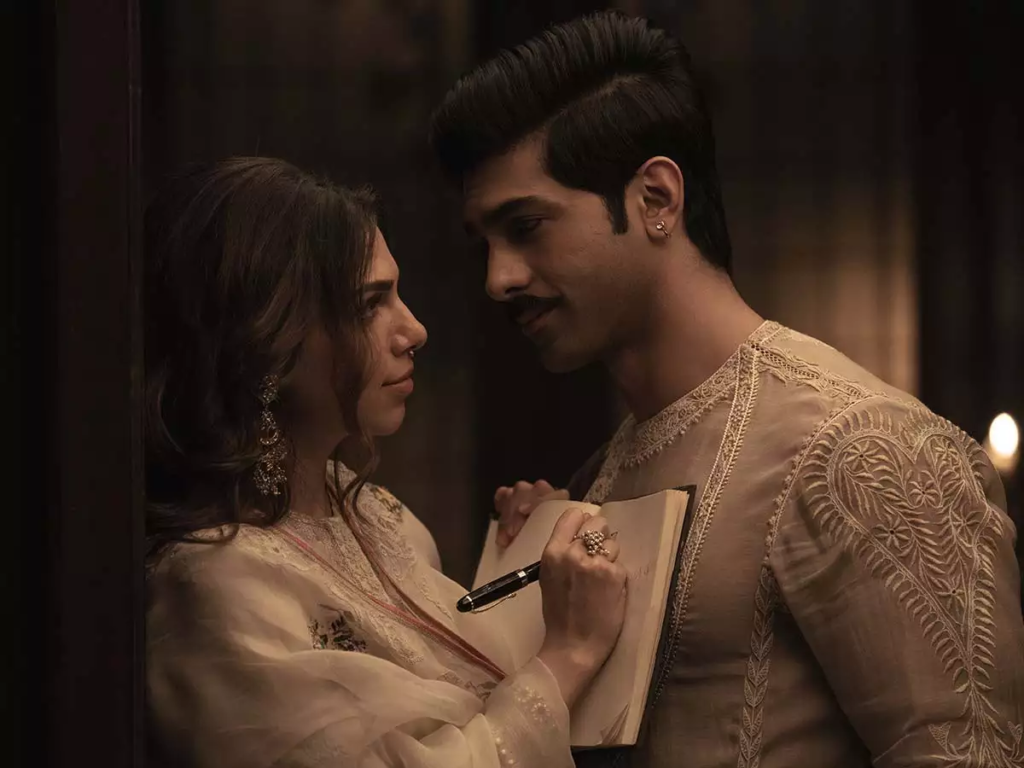
Netflix’s “Heeramandi: The Diamond Bazaar,” directed by Sanjay Leela Bhansali, has captivated audiences with its lush visuals and intricate storytelling, but it’s also ignited a debate about nepotism in Bollywood. The source of this controversy is the casting of Sharmin Segal, Bhansali’s niece, as Alamzeb, a key character in the series. Her performance has come under heavy scrutiny, with some questioning whether her family ties played a role in securing the role.

Heeramandi: A Visual Fiesta
Set in the pre-Independence era of Lahore’s famous Heera Mandi district, the series explores the lives of courtesans and the power struggles within this historic setting. Bhansali’s trademark grandiose style is evident throughout, with opulent sets, dazzling costumes, and elaborate dance sequences that are a feast for the eyes. The storyline revolves around Mallikajaan, the matriarch of Shahi Mahal, played by Manisha Koirala, and her daughters Bibbo and Alamzeb, portrayed by Aditi Rao Hydari and Sharmin Segal, respectively.

While the series has garnered praise for its cinematic beauty and elaborate production, Sharmin Segal’s portrayal of Alamzeb has faced criticism. Many viewers have expressed dissatisfaction with her performance, calling it “expressionless” and lacking emotional depth. This criticism has fueled the ongoing debate about nepotism in Bollywood, with some suggesting that Segal’s family connections played a role in her casting.
The Nepotism Debate

The concept of nepotism in Bollywood is not new, but it continues to spark controversy. When actors are perceived to have received roles due to their family connections rather than merit, it can lead to public backlash. Sharmin Segal’s role in “Heeramandi” has brought this issue back into the spotlight, with some viewers questioning whether she earned her role or if it was given to her because of her relationship with Bhansali.

Sharmin has addressed these criticisms, stating that she had to give 17 auditions for her role in “Heeramandi.” She also mentioned that she’s the youngest in the cast and has the least experience, highlighting the challenges she faced to secure the role.
The backlash was significant enough for Sharmin to turn off comments on her social media posts, indicating that the criticism affected her deeply.
A Mixed Reception
While “Heeramandi” has been praised for its grand production and Bhansali’s creative vision, it hasn’t been immune to criticism. Beyond the controversy surrounding Sharmin Segal’s casting, some viewers have noted the series’ slow pacing and melodramatic elements. However, the strong performances by Manisha Koirala, Aditi Rao Hydari and Sonakshi Sinha have helped maintain the show’s appeal.

Sharmin Segal’s role as Alamzeb, though central to the story, has been described as lacking the depth required for such a significant part. This has led to speculation that another actress might have been a better fit. Despite the criticism, “Heeramandi” continues to draw attention and spark conversations about the role of nepotism in Bollywood.
The Impact of Nepotism
The controversy surrounding nepotism brings up significant issues regarding meritocracy in the entertainment sector. Family ties come with more scrutiny and expectations, but they can also give you a foot in the door. The path of Sharmin Segal serves as a warning that people with industrial connections are not exempt from difficulties, and public opinion can be harsh.

In the end, a television show like “Heeramandi” succeeds or fails based on how well-written the plot is, how well the actors in it are, and how well it draws viewers in. The discussion about nepotism will undoubtedly rage on, but in the meanwhile, it’s critical to keep in mind that each actor’s path is different and that skill, perseverance, and hard work are the keys to success.
